Final Words: Sijia He

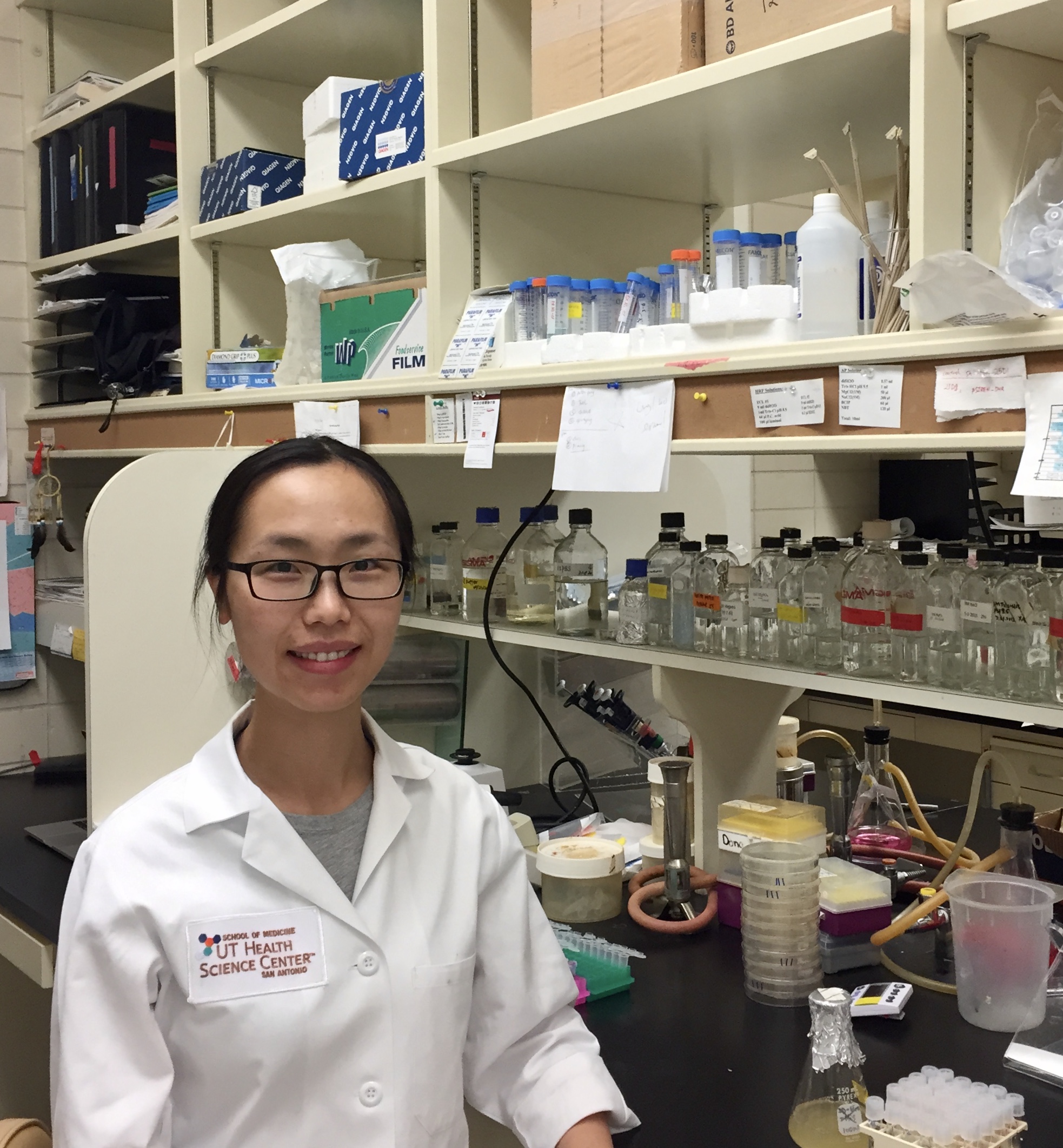 1) Your name, program, dissertation title.
1) Your name, program, dissertation title.
Sijia He, Integrated Biomedical Sciences (IBMS) program–Physiology and Pharmacology Discipline, “The Role of Novel Adipokine in the Regulation of Obesity-induced Hepatic Steatosis and Insulin Resistance”
2) Please tell me about yourself, why did you pick UT Health San Antonio, and your program.
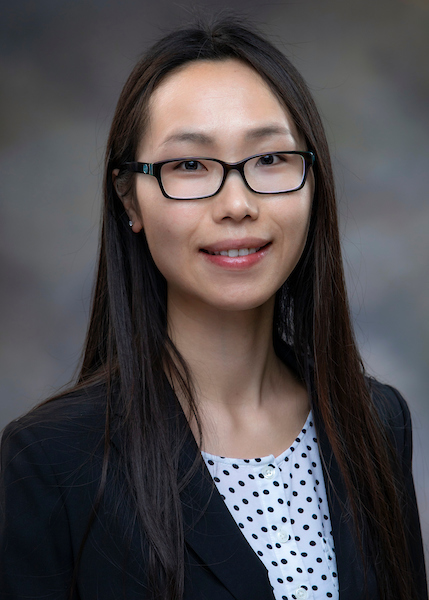 I’ve always had a curiosity for disease treatment growing up as a child in middle-south China. I dreamed about becoming a doctor once but as I learned how diseases are targeted for treatment, I realized that understanding the fundamental mechanisms of disease pathology actually may have profound impacts in developing new treatments.
I’ve always had a curiosity for disease treatment growing up as a child in middle-south China. I dreamed about becoming a doctor once but as I learned how diseases are targeted for treatment, I realized that understanding the fundamental mechanisms of disease pathology actually may have profound impacts in developing new treatments.
In college, I studied bioinformatics and later on, I did my master’s degree in biomedical engineering. During my work at the Metabolic Syndrome Research Center (MSRC) in Changsha, China, I became specialized in obesity-related metabolic research. Dr. Feng Liu invited me to visit UT Health San Antonio. I was very excited with the academic atmosphere at UT Health San Antonio and eager to further my education. The IBMS program was a perfect fit for me because it’s a multidisciplinary program. Looking back, I benefited a lot from the courses which exposed me to almost all aspects of scientific knowledge as well as the easy access of research collaboration.
3) What has been the highlight of graduate school so far? Have you won any awards or have there been any achievements you’ve been proud of?
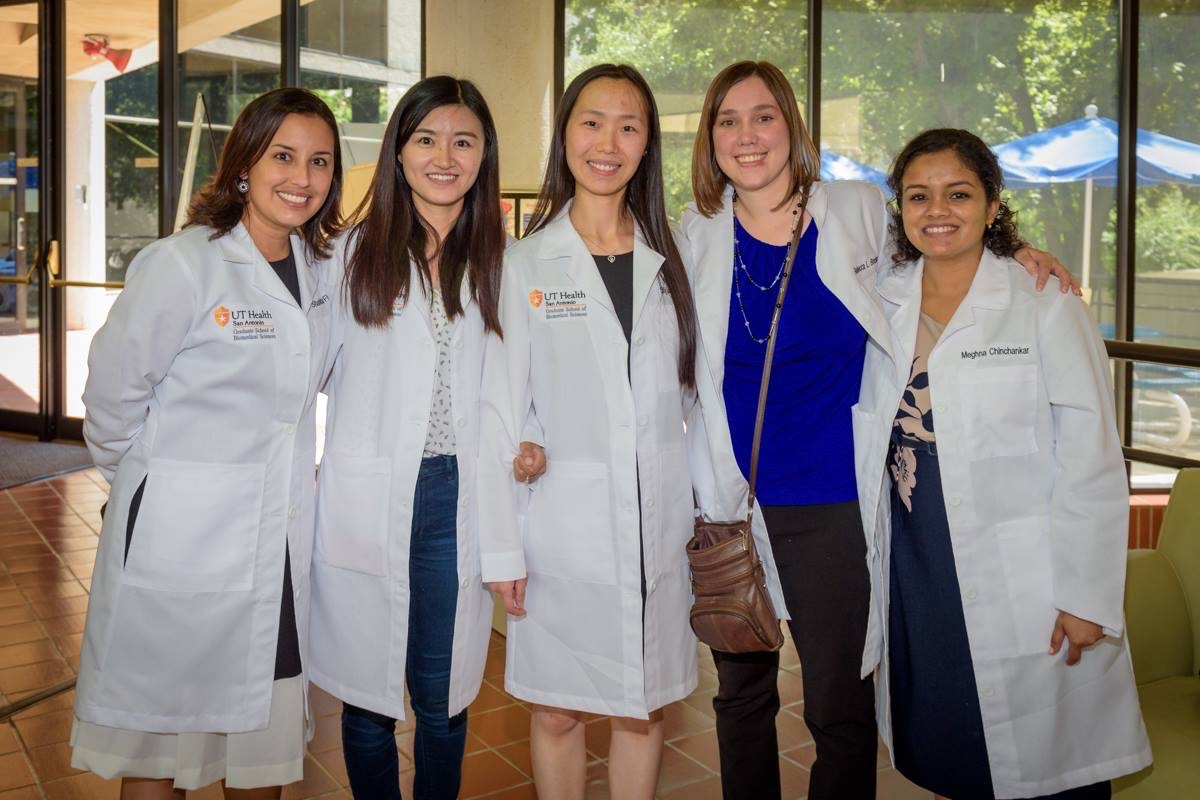
During my graduate study in UT Health San Antonio, I worked hard to maintain a good academic standing which led to my 4.0 GPA. I am very glad that I spent most of my time studying and in lab.
I was very proud that I was granted the Spring 2018 GSBS travel award, as a recognition of my graduate study and support for attending the ADA meeting.
Another highlight of my graduate school career was winning 1st place at the 2019 Long School of Medicine Research Day poster competition. It was a wonderful experience and I enjoyed introducing my study to the audience.
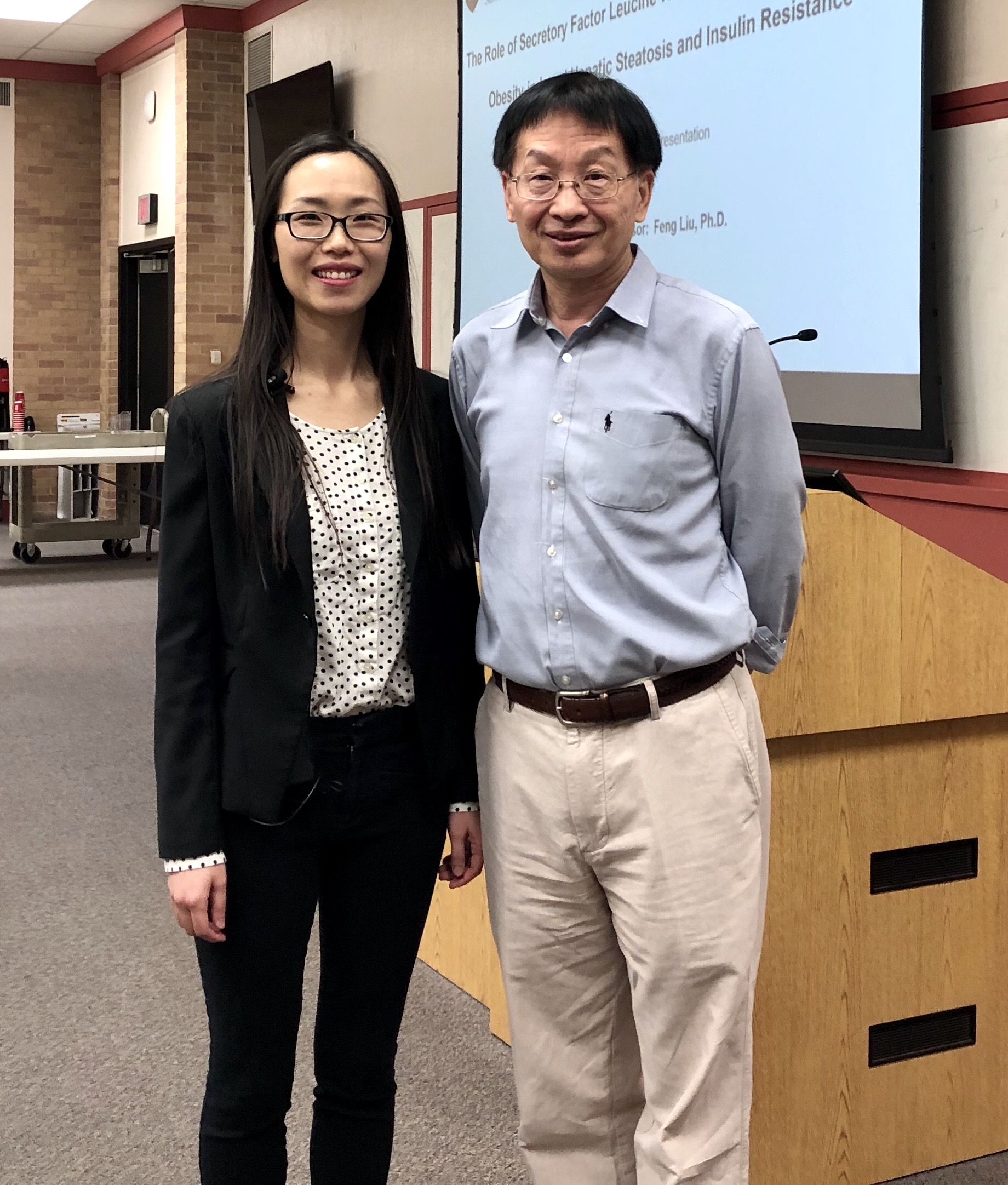 4) Please provide a few sentences summarizing your dissertation. What was the experience like for you?
4) Please provide a few sentences summarizing your dissertation. What was the experience like for you?
I worked with my mentor Dr. Feng Liu for my dissertation project. One of the focuses of the Liu lab was to investigate the endocrine function of adipose tissue and elucidate the potential roles of these factors in regulating obesity-associated metabolic disease (such as: type 2 diabetes, non-alcoholic fatty liver disease, cardiovascular disease). I identified novel adipokine through this project. Using both knockout mouse model and cell culture studies, I demonstrated that this novel adipokine is elevated in obesity and promotes diet-induced insulin-resistance and fatty liver through its specific affinity to the liver organ. These findings identified an inter-organ crosstalk mechanism during the development of obesity-related metabolic disorders and also provided potential target for drug development.
Exploring the unknown was not as easy as I thought. During the course of my graduate study, I encountered all sorts of difficulties, but luckily, my mentor Dr. Feng Liu was always there to guide me and keep me on track. He was very supportive in all aspects of my project. Besides him, I also received a lot of help from my dissertation committee members and internal and outside collaborations.
5) Why are you passionate about your research topic? How did you first become interested in it?
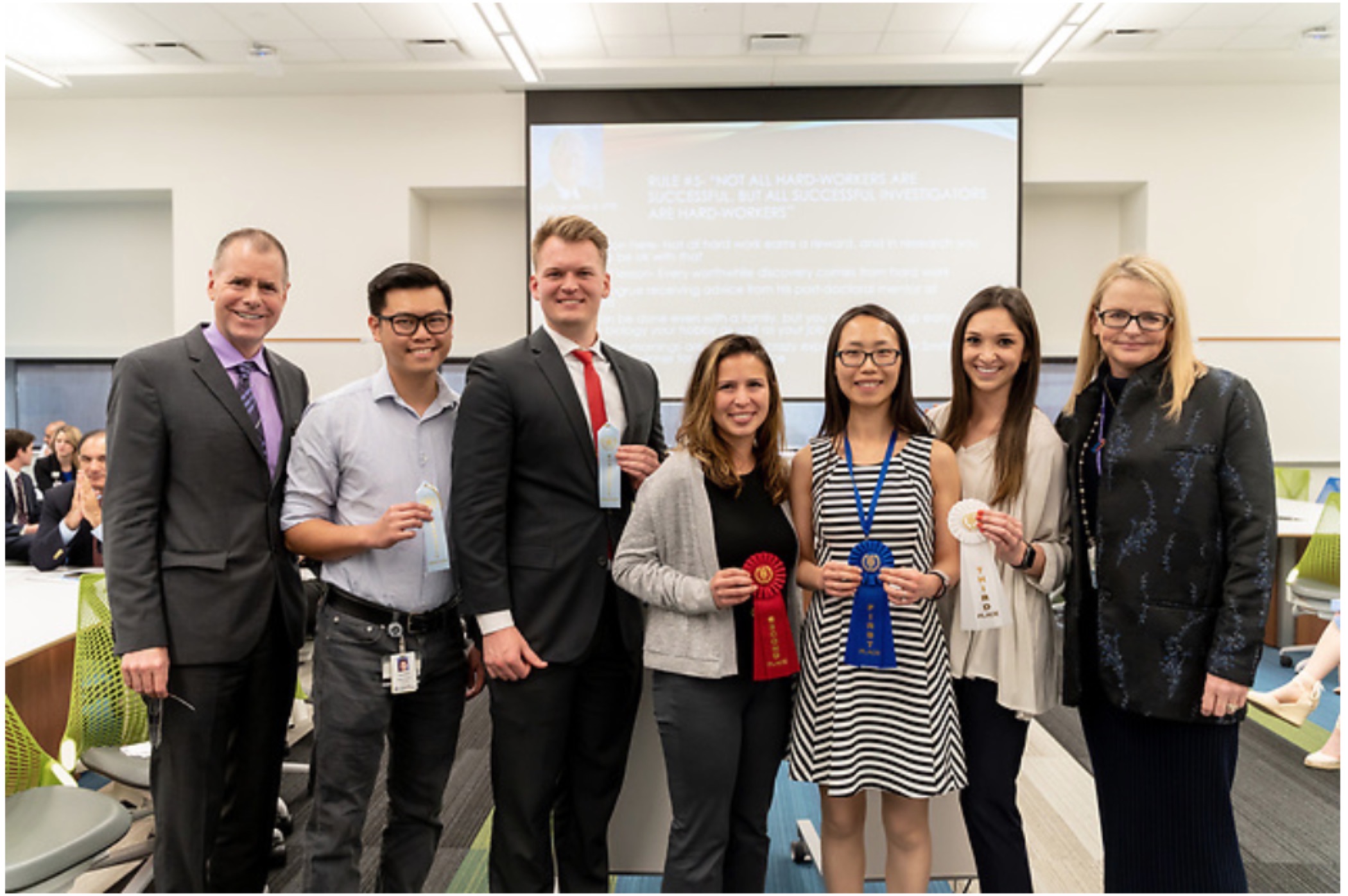
When I joined the lab, my mentor Dr. Feng Liu and our collaborator Dr. Lily Dong had years of experience studying an adipokine called adiponectin, so the lab was technically ready for such kind of project. At the same time, researchers in the field realized that the identity and function of other novel adipokines and their role in obesity-related diseases were far from fully understood, which was a very interesting direction for me. As adipokines are mostly in the circulation and may have endocrine functions, I considered them very good drug targets and was also excited to discover new players in disease development.
6) What’s next?
I joined the lab of Dr. Xianlin Han at the Sam and Ann Barshop Institute for Longevity and Aging Studies of UT Health San Antonio. Dr. Han is a very well-established scientist in lipidomic research. He did a lot of innovative research on sulfatide function in the context of Alzheimer’s disease development. The Han lab provides a unique platform which would be a huge advantage to me for developing a career in academia.
7) Any advice for your fellow graduate students?
The five year Ph.D. program seemed like a long time, but it went quick. The final outcome depends on our hard work and smart thinking as well as decision making everyday. Stay positive and keep going and you will be fine. Make sure to be scientifically connected with a mentor, socially connected with friends and family, and seek help from IBMS program leadership as well as departmental stuff, they are always very helpful, be appreciative of their effort. Most of all, enjoy your journey in graduate school!
